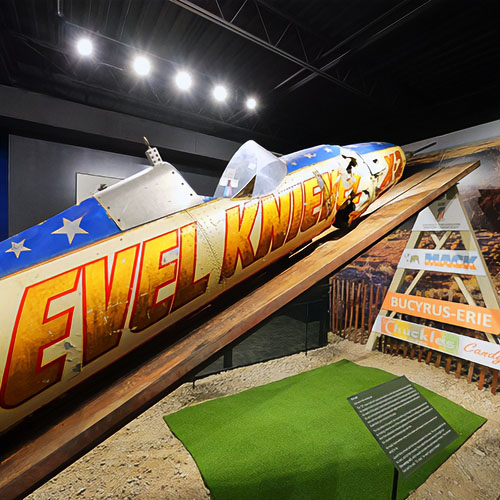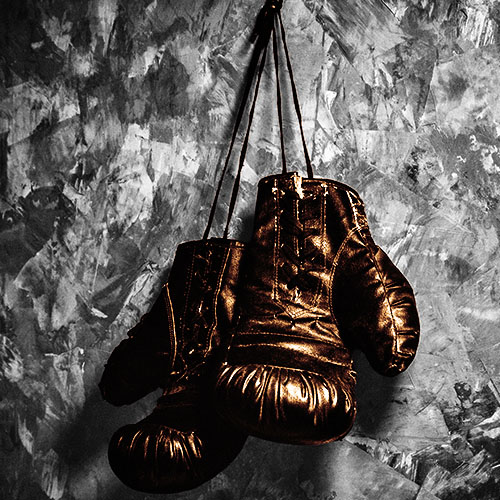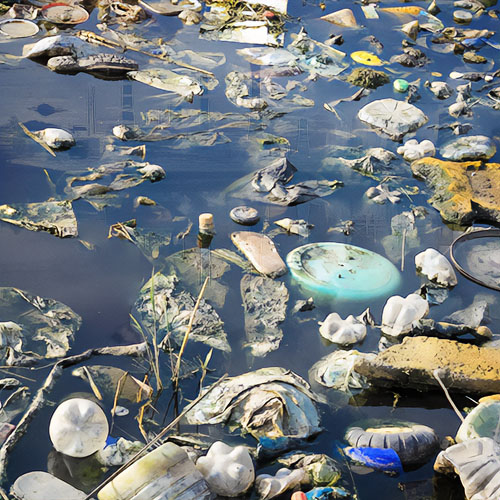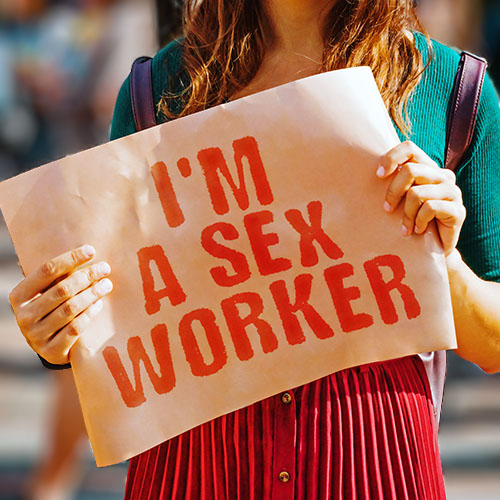The concept of “radioactive politics” perhaps defines today even moreso than it did twenty years ago when both these articles appeared in the magazine. It’s almost like if we keep whitewashing — to use the term ironically — our history, we cannot help but repeat it.
Bush’s Deadly [Nuclear] Gamble
I m a longtime contributor to Penthouse, but I never thought I’d be writing an article for the magazine. As a Penthouse Pet I have appeared in several pictorials in the U.S. edition and in many foreign editions. I was a star of Bob Guccione’s great porn epic, Caligula and I’ve worked for Penthouse Promotions and traveled all over the world. Thanks to all these wonderful experiences I consider myself a very lucky person.
For the past 20 years I’ve lived in Las Vegas and appeared in many shows. (Right now I’m preparing a new show called “Goddess” and I still dance part-time at the Crazy Horse Too. I’m also cutting a new CD of original songs.)
Unfortunately, none of this is why I’m in the magazine you’re reading right now.
I’ve had to take time away from rehearsing and entertaining to learn about life and death…
And now I and millions of other citizens of Nevada have had a short quick, brutal lesson in the realities of politics and politicians.
I voted for George W. Bush for president. One of the reasons I did so was because he made a commitment not to ship radioactive waste to my home state of Nevada until and unless the nation’s leading scientists had studied the situation and were certain there were no safety issues at stake.
When I voted for him I would have liked to have written an article for Penthouse, sharing my optimism about the man and urging others to join me. And after September 11, I was positive I had made the right choice.
But I was wrong. George Bush lied.
As the Washington Post’s David Broder, perhaps the country’s most respected political reporter, wrote earlier this year, “If you need a favor from this administration, you’d better be from a big state that figures importantly in the president’s calculus for reelection …. When it came to approving a nuclear-waste dump for the nation at Yucca Mountain, Nevada, Bush was willing to forget the promises he and Vice President Cheney had made in the last campaign …. Nevada had four electoral votes in 2000 and went very narrowly to Bush — in part because of the now-forgotten promise …. But even with its rapid population growth, Nevada will have only five electoral votes next time around.”
I’m unhappy because this poison is going into my backyard. But I’m sure that when Americans find out just how dangerous the Department of Energy’s plan for Yucca Mountain really is, they too will probably freak out.
The Nuclear Regulatory Commission wants to send 77,000 tons of nuclear waste across 43 states and through 109 U.S. cities to Yucca (see map below). They say this waste can be stored safely for up to 10,000 years. Do you believe them? I don’t. How will we know if it’s safe after even 100 years?
Approximately 100,000 people live along the proposed transportation routes. Some 52 million people live within a half mile of the routes, and the transportation of the radioactive waste would involve 96,000 shipments for 25 years.
Las Vegas Mayor Oscar B. Goodman says, “For years this has been a Nevada problem. Today it is the country’s problem. All it takes is one terrorist with a TOW missile obtained on the black market to take out a truck carrying this deadly substance, and we get Chernobyl in our backyard. And this applies to any city along the proposed routes — Los Angeles, Portland, Salt Lake Cit y, Philadelphia, Chicago, Dallas, and dozens of others. This is the stuff of our worst nightmares.”
Would you want to live next door to the nation’s nuke dump? Would you want to be traveling leisurely down the highway, never knowing when a truckload of this stuff is beside you? Do you want this killer material being sent all over the USA on railways, barges, and roads? I think not.
Moreover, now that we know what terrorists are capable of, we know there is no way the government can guarantee that an Osama bin Laden or a Timothy McVeigh could never get his hands on one of these deadly shipments. After seeing what terrorists were capable of at the World Trade Center and Oklahoma City, do we really want to take a chance?
Only one day after the recommendation for Yucca by Secretary of Energy Spencer Abraham, President Bush approved the idea. Bush did not spend any time pondering or analyzing it, despite his pledge that he would base his decision on “sound scientific evidence.” There are still hundreds of unanswered scientific questions about Yucca.
I am terribly disappointed in our president. Bush has been so good on so many important things, but if he is so worried about a nuclear threat from the outside, then why would he want to take a chance with millions of American lives by exposing them to a possible nuclear holocaust? Would he want the nation’s nuke dump to be in Texas if he were still governor there?
I’m so tired of double talk, aren’t you? Homeland security? What a joke. What happens to the waste after the 10,000 years of supposed safety? Do we not care about our children’s children, and just leave this problem to them?
Back in 1987, when the nuke dump was first being considered, New Hampshire was on the list. Needless to say, its governor at the time, John Sununu, was dead-set against it. Now he is a pro-repository lobbyist for the U.S. Chamber of Commerce. This is what he says now: “If Nevada is not willing to do its part in what is part of a national plan for homeland security … maybe we ought to vacation somewhere else.” So does that mean we should not vacation in New Hampshire either? I think not. Why blame the people there for this stupid, greedy man?
This project is supposed to cost $309 billion! For that amount of money, we could be finding new forms of energy. And once the $309 billion is all spent on this project, what will we have? Not much. Because there will still be more waste that will need to be stored. Can’t a smart country with today’s technology come up with a safer and more productive way to process spent rods into reusable forms of energy?
Those of you who love coming to Vegas should bear in mind that the Strip is less than 100 miles from where the nuclear waste will be stored. Many scientists say that Yucca Mountain — situated right on an earthquake fault — is volcanic in nature. If we can’t stop it, tourists in the near future might see topless shows with three-breasted women dancing around on one leg.
Very seriously, my friends, please consider this: If there are any slip-ups at all — in the manufacturing of the canisters, the loading, or the delivery, or if there is an act of terrorism or an accident of any kind — is America willing to suffer the consequences of this act of criminal negligence and folly?
It’s a life-or-death decision. Please do share your opinions with your own elected officials — and, as I did, with George W. Bush. It might be the most important letter you’ll ever write.
Radioactive Politics
Ever since George W. Bush decided last winter to move forward with the burial of thousands of tons of nuclear waste under Yucca Mountain, politics in Nevada has taken a strange and angry turn. The Republican governor has declared war on his own party’s president, the Republican senator has joined forces with the Democratic senator he once tried to unseat, and the state’s sagebrush conservatives are seeking help from the liberal environmentalists they ordinarily despise. If the bookies in Las Vegas are taking bets on the 2004 election, the odds against Republicans again carrying Nevada must be very long.
Nevadans have always complained that their state was unfairly singled out as the glowing trash bin for the nation’s nuclear waste. They often mention that when Congress first chose Yucca Mountain for that dubious distinction in 1982, the most powerful politicians on Capitol Hill hailed from Texas and Washington, the two states that were eliminated as potential alternative sites.
Now Nevadans are furious again because they believe Bush misled them about the Yucca controversy two years ago in order to win their four electoral votes in his razor-close contest against Al Gore. (The Clinton-Gore ticket had carried Nevada during the two previous national elections, but late surveys showed that the November 2000 election could go either way in Nevada.)
The specific promise that Nevadans now recall so bitterly was actually made by Dick Cheney. Just before Election Day, he unexpectedly showed up at the Reno airport, where he urged voters to ignore the Gore campaign’s warnings about him and his running mate. Contrary to the Democrats’ television ads, said Cheney, there was “no difference” between Bush and Gore on the Yucca issue.
Cheney went further, vowing that a Bush administration would kill any Yucca project “that is not based on sound science and can’t be done safely,” and that he and Mr. Bush would “support the EPA setting tough standards for health and the environment before anybody does anything” at Yucca Mountain. “We won’t support it on either a temporary or permanent basis” unless “it’s deemed safe by government scientists.” That pledge helped the Republican ticket win Nevada by a very narrow margin of 21,500 votes.
So when Bush cited “two decades of sound science” last February to support his decision in favor of the Yucca site, the project’s opponents in Nevada understandably thought they had been deceived. Democratic Senator Harry Reid bluntly called the president “a liar.” Such suspicions only grew amid reports that Bush’s energy secretary, Spencer Abraham, had met with two organizations that support the Nevada repository, but none that oppose it; he also met eight times with legislators who support it and only once with an opponent, Nevada’s embarrassed Republican Governor Kenny Guinn.
While Cheney himself was putting together the Bush energy plan last year, several nuclear executives met with senior White House aides Karl Rove and Lawrence Lindsey, as well as with the energy task force’s executive director. Soon the vice president was publicly urging America to “get on with the business of finding a geologic repository” for nuclear waste. As he knew, there was only one legally designated site: the one at Yucca Mountain.
Cynics in Las Vegas think that the Yucca game was rigged from the beginning because of various financial and personal connections between the Bush White House and the energy industry. Edison Electric Institute chief Tom Kuhn, one of Washington’s most powerful corporate leaders and a Bush classmate at Yale, headed up the GOP ticket’s wildly lucrative fundraising among Washington business lobbyists. As a “Bush Pioneer,” he far exceeded the $100,000 minimum that every Pioneer agreed to raise. The lobbyist instructed his fellow utility executives — for whom the Yucca project is a major priority — to write a special tracking number on their Bush campaign checks, which would “insure that our industry is credited.”
However influential those generous donations may have been, White House press secretary Ari Fleischer insisted that Bush had ordered construction to begin at Yucca based on that good old “sound science.” Yet only weeks before the announcement, the General Accounting Office had issued a lengthy report that cautioned against any quick decision. That report, based on research by the government’s own scientists and engineers, outlined doubts about the stability of the mountain’s rock formations, the flow of underground water through the site, and the “effect of volcanic activity,” among other problems. The GAO report questioned the “prudence and practicality” of commencing construction immediately, but Bush ignored its findings.
In response, the Nevada governor issued a veto of the White House proposal, setting up a confrontation in Congress, which can override the state authorities. Opponents of the project include almost every environmental organization in the country, along with casino owners unhappy at the prospect of a nuclear dump only 90 miles from their Vegas gaming tables and hotels. They have hired two former presidential aides, former Clinton Chief of Staff John Podesta and former Reagan Chief of Staff Ken Duberstein, to help make their case.
Energy and nuclear lobbyists have already spent millions of dollars to promote the Yucca site, which they consider essential to their hopes of a revived nuclear-power industry. (The last American nuclear power plant was completed in 1979.) Hired advocates include former Democratic vice-presidential nominee Geraldine Ferraro and John Sununu, former chief of staff in the first Bush White House.
Both sides agree that the best chance to defeat the project will come in the Senate this summer. The popular, forceful Senator Reid, who has emerged as the leader of the opposition, also happens to be the Democratic whip and closest associate of Senate Majority Leader Tom Daschle. While Reid is likely to win over most of his Democratic colleagues, he and John Ensign, Nevada’s Republican junior senator, must convince at least a dozen GOP senators if they are to prevail. As they privately admit, that won’t be easy, with heavy pressure from the White House for an override of Guinn’s veto.
What the opponents hope will sway public and political opinion against the project is a map that shows the future routes of thousands of trucks, each of which will carry tons of nuclear waste across the country to Yucca Mountain. Every shipment could be vulnerable to a terrorist attack or a simple but disastrous accident. And that highly radioactive garbage will have to pass through most every state’s backyard long before it ends up in Nevada.
Nuclear Energy has suddenly exploded to the forefront of the arguments again as we navigate the political battles over climate change — including its mere existence, if that makes any sense at all. Anyone who has lived in the same place for more than 20 years can tell you that “the weather and seasons” have changed dramatically over that time. Sometimes politics can seem like an all-too real-life battle between sticking your head in the sand and Chicken Little. And here we thought we were electing grown-ups to be in these important rooms. Silly us. … Regardless of that sad fact, the nuclear issue has become once again a “clean alternative” to evil carbon emissions. We read lots of debates in lots of different American cities about reopening, or postponing scheduled closings, of nuclear power plants. Do you know what we have not read about in this “modern” debate on the issue? … Nuclear waste. … Maybe we should think about Happy Bartenders again.
























